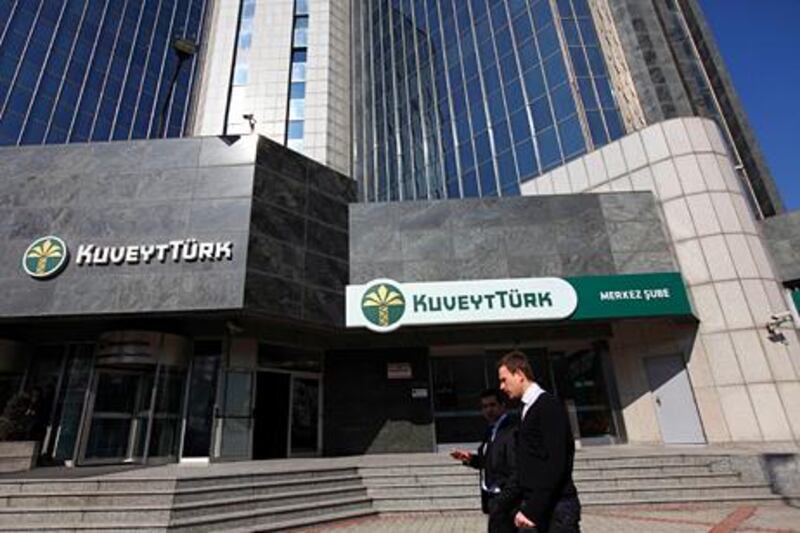BERLIN // Bank Kuveyt Türk, based in Instanbul, plans to set up the first Islamic bank in Germany next year to tap into a potential market of more than four million Muslims.
An official at the German branch of Kuveyt Türk, majority-owned by Kuwait Finance House, said on Monday the bank was preparing its application for official approval.
"We haven't issued a statement on that because we're not in a position to while the licence is being worked on. We will release a statement only when we get the licence," said the official.
According to media reports, the bank will file its request to the German financial regulatory authority, BaFin, in October.
The new bank would be based in Frankfurt, Germany's financial capital, and it would open further branches in cities with large Muslim populations such as Berlin, the reports said.
Islamic banking carries out financial business in accordance with Sharia law, which prohibits charging interest or providing deposit insurance for clients. In addition, Islamic banks can not invest in certain types of assets, such as firms that produce alcohol, process pork or engage in gambling, or have a large percentage of borrowed capital. The sector is enjoying rapid growth in the Muslim world but is still in its infancy in much of Europe. Islamic banking has been available since 2004 in Britain, which now has five full Islamic banks and more than 20 conventional banks offering Islamic finance.
Zaid El Mogaddedi, the managing director of the Institute for Islamic Banking and Finance, based in Frankfurt, estimates the market potential for new business in Islamic financial products in Germany amounts to €1.2 billion per year (Dh5.52bn).
Attempts to offer Islamic financial products in the past have failed due to a lack of demand. Commerzbank launched a Sharia-compliant investment bank in 2005 but has since closed it down. An Islamic fund set up in 2010 by Meridio, an asset management firm, was dissolved prematurely.
Not even Deutsche Bank, Germany's largest bank, which has its own unit catering for some 380,000 customers of Turkish origin, has set up Islamic finance products. "There is virtually no demand for it," the bank said.
Islamic finance took off in the 1970s in the wake of the oil price boom that gave Muslim oil producers a windfall of cash to invest. It has been expanding rapidly in recent years.
The UK Islamic Finance Secretariat estimates the global market for Islamic financial services reached US$1.13 trillion (Dh4.15tn) at the end of 2010, 21 per cent up from 2009, and is likely to have grown a further 14 per cent last year.
But that still amounts to just 1 per cent of the global financial market.
The largest centres remain concentrated in Malaysia and the Middle East, including countries such as Iran, Saudi Arabia, UAE, Kuwait, Bahrain and Qatar.





